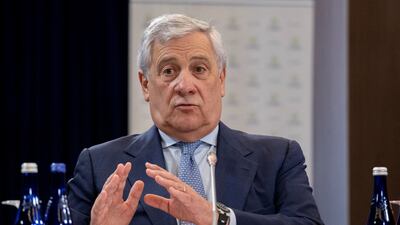
Italian Foreign Minister Antonio Tajani says increase diplomacy with Damascus intensifies spotlight on Syrian government. Reuters
Italian Foreign Minister Antonio Tajani says increase diplomacy with Damascus intensifies spotlight on Syrian government. Reuters
Italy appoints ambassador to Syria 'to turn spotlight' on country
Rome announces renewal of diplomatic ties with Bashar Al Assad's government in Damascus after 12 years
